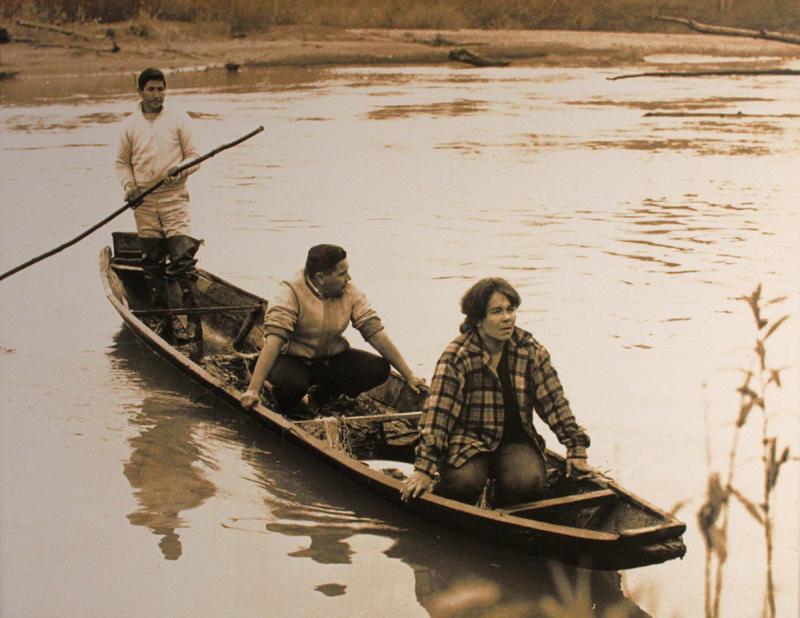Native American Fishing Rights
In 1959, Washington State authorities forcefully evicted Puyallup, Nisqually, and other tribal subsistence fishermen from sites formerly reserved in land agreement treaties. New laws restricted fishing to a repeatedly shrinking area, and risked the livelihood of many Native Americans. Those who ignored the new laws were at risk of arrest and confiscation of fishing materials.
Salmon loss eroded healthy eating habits, time-honored cultural practices, and fishing traditions central to tribal life. Incidence of diseases such as diabetes rose. Consequently, opposition to the new fishing laws formed. In the 1960s, Nisqually tribe members organized themselves through staged “fish-ins” – illegal fishing at Frank’s Landing, a settlement in Puget Sound where fishing was restricted – to protest the denial of rights and to re-secure lawful ability to fish throughout Washington State. Incredible endurance and media savvy brought momentum and public awareness to the protests. An eventual court decision ruled in the Nisqually favor, protecting fishing rights that had been historically guaranteed.

Courtesy of University of Washington Libraries, Special Collections, NA709, photograph by Norman Edson

Courtesy of Northwest Indian Fisheries Commission, Olympia, Washington
